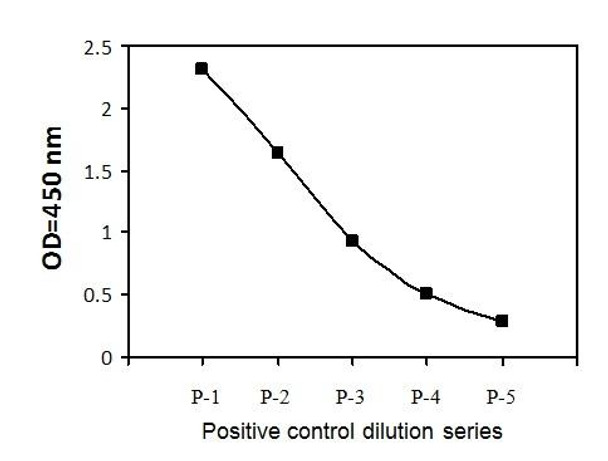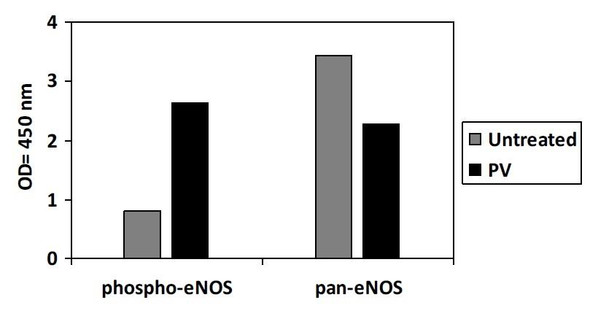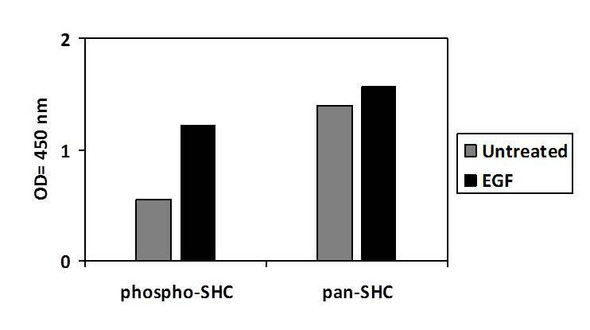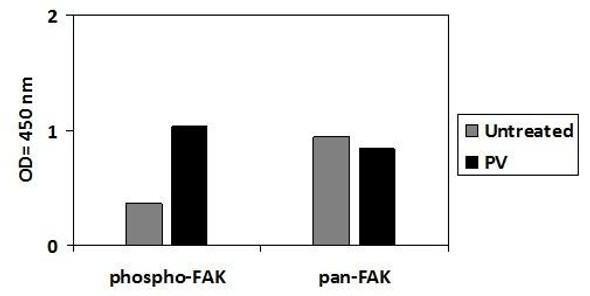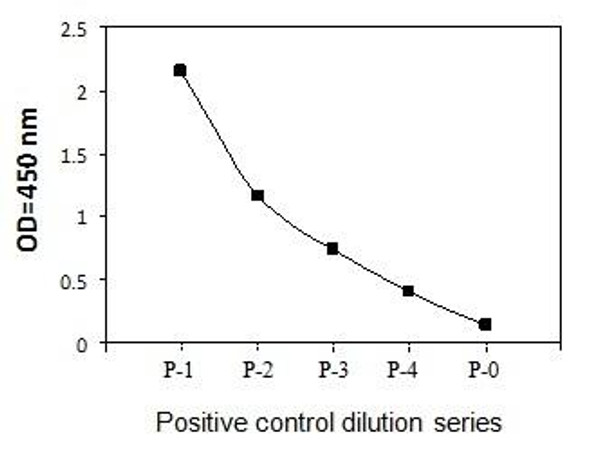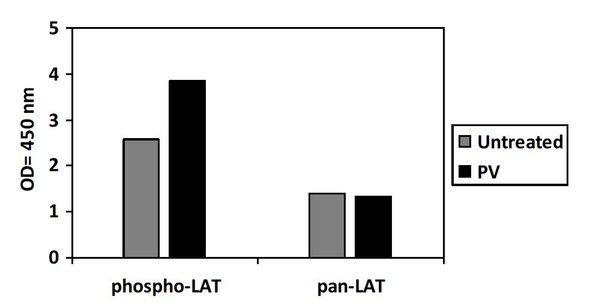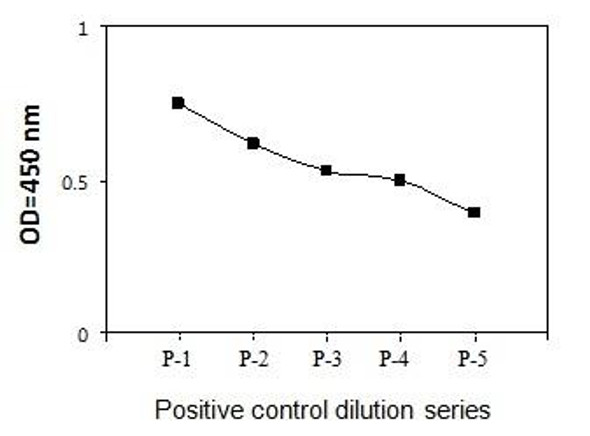Description
Human Phospho-NBS1 (S343) PharmaGenie ELISA Kit
Assay Genie Phospho-Nbs1 (Ser343) ELISA kit is a very rapid, convenient and sensitive assay kit that can monitor the activation or function of important biological pathways in human cell lysates. By determining phosphorylated Nbs1 protein in your experimental model system, you can verify pathway activation in your cell lysates. You can simultaneously measure numerous different cell lysates without spending excess time and effort in performing a Western Blotting analysis. This Sandwich ELISA kit is an in vitro enzyme-linked immunosorbent assay for the measurement of human phospho-Nbs1. An anti-pan Nbs1 antibody has been coated onto a 96-well plate. Samples are pipetted into the wells and Nbs1 present in a sample is bound to the wells by the immobilized antibody. The wells are washed and rabbit anti-Nbs1 (Ser343) antibody is used to detect phosphorylated Nbs1. After washing away unbound antibody, HRP-conjugated anti-rabbit IgG is pipetted to the wells. The wells are again washed, a TMB substrate solution is added to the wells and color develops in proportion to the amount of Nbs1 (Ser343) bound. The Stop Solution changes the color from blue to yellow, and the intensity of the color is measured at 450 nm.
| Product SKU: | SBRS1909 |
| Size: | 96T |
| Application: | The antibody pair provided in this kit recognizes human NBS1 phosphorylated at site Serine-343. |
| Uniprot: | Q9NX02 |
| Gene ID: | 55655 |
| Gene Names: | NALP2 / NBS1 / NLRP2 / PAN1 / PYPAF2 |
| Pathway: | DNA Damage |
| Synonyms: | NACHT, LRR and PYD domains-containing protein 2 (Nucleotide-binding site protein 1) (PYRIN domain and NACHT domain-containing protein 1) (PYRIN-containing APAF1-like protein 2) |
| Target Species: | Human |
| Compatible Sample Types: | Cell Lysates, Tissue Lysates |
| Design Principle: | Sandwich-based |
| Method of Detection: | Colorimetric |
| Quantitative/Semi-Quantitative: | Semi-Quantitative |
| Storage/Stability: | Upon receipt, the kit should be stored at -20°C. Please use within 6 months from the date of shipment. After initial use, Wash Buffer Concentrate (Item B), Assay Diluent (Item E), TMB One-Step Substrate Reagent (Item H), Stop Solution (Item I) and Cell Lysate Buffer (Item J) should be stored at 4°C to avoid repeated freeze-thaw cycles. Return unused wells to the pouch containing desiccant pack, reseal along entire edge, and store at -20°C. Item D, store at 2-8°C for up to one month (store at -20°C for up to 6 months, avoid repeated freeze-thaw cycles). Reconstituted Positive Control (Item K) should be stored at -70°C. |
- Pre-Coated 96-well Strip Microplate
- Wash Buffer
- Anti-Phospho Antibody
- HRP-Conjugated Secondary Antibody
- Assay Diluent
- TMB One-Step Substrate
- Stop Solution
- Lysis Buffer
- Positive Control Sample
Other materials and equipment required:
The Assay Genie Human Phospho-NBS1 (S343) PharmaGenie ELISA Kit (SBRS1909) will require other equipment and materials to carry out the assay. Please see list below for further details.
- Distilled or deionized water
- 100 ml and 1 liter graduated cylinders
- Tubes to prepare sample dilutions
- Protease and Phosphatase inhibitors
- Precision pipettes to deliver 2 ul to 1 ml volumes
- Adjustable 1-25 ml pipettes for reagent preparation
- Benchtop rocker or shaker
- Microplate reader capable of measuring absorbance at 450 nm
- Prepare all reagents and samples as instructed in the manual.
- Add 100 ul of sample or positive control to each well.
- Incubate 2.5 h at RT or O/N at 4 °C.
- Add 100 ul of prepared primary antibody to each well.
- Incubate 1 h at RT.
- Add 100 ul of prepared 1X HRP-Streptavidin to each well.
- Incubate 1 h at RT.
- Add 100 ul of TMB One-Step Substrate Reagent to each well.
- Incubate 30 min at RT.
- Add 50 ul of Stop Solution to each well.
- Read at 450 nm immediately.
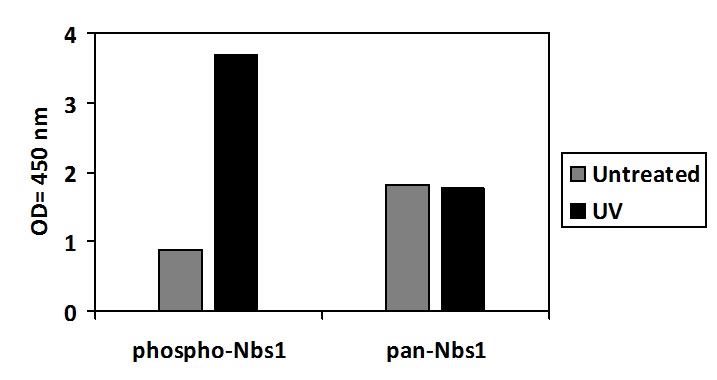 | T47D cells were treated or untreated with UV. Cell lysates were analyzed using this phosphoELISA and Western Blot. |
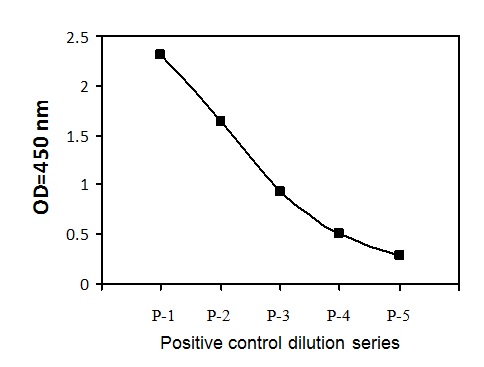 | T47D cells were irradiated with UV. Solubilize cells at 4 x 107 cells/ml in Cell Lysate Buffer. Serial dilutions of lysates were analyzed in this ELISA. |


